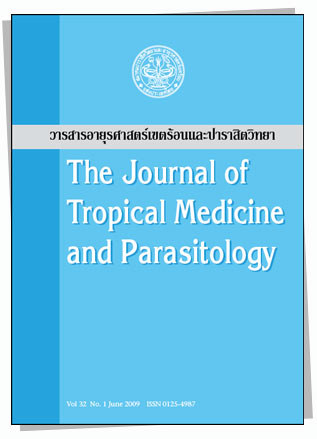Prevalence of Intestinal Parasitic Infections among Food Vendors in Accra, Ghana
Main Article Content
Abstract
Abstract
The operation and patronage of fast-food joints, restaurants, and chop bars have increased and become common in the Ghanaian community, especially in urban areas. Despite the benefits derived from these food joints, their operation raises public health issues, since food vendors could be a major transmission source for intestinal parasitic infections. The environmental risk factors of these practices in Ghana have not yet been clearly elucidated. This study sought to determine the prevalence of intestinal parasites associated with food vendors in Accra, and assess the risk for consumers of street-food. Random sampling was used to select 204 food vendors from 7 metropolitan areas in Accra. The parasitological profiles of stool samples from the vendors sampled were developed using direct smear, formalin-ethyl acetate sedimentation method, modified Ziehl Neelsen, and trichrome staining techniques. Vendors were also interviewed using a questionnaire. The overall prevalence of parasitic infection was 21.6%, with helminthic (15.2%) predominating over protozoan (6.4%) infections. Seven different parasites were identified: Ascaris lumbricoides (5.0%), Strongyloides stercoralis (4.4%), Enterobius vermicularis (4.1%), Cryptosporidium parvum (2.5%), Giardia lamblia (2.0%), Ancylostoma duodenale (2.0%), and Entamoeba histolytica (2.0%). The study indicated high levels of gastrointestinal parasitic infection among food vendors in the metropolis, and raised the need for education on safe handling of food, and improved sanitation and personal hygiene, to avert potential health threats to patrons.
Keywords : gastrointestinal parasites, food vendors, food safety, prevalence, Ghana
